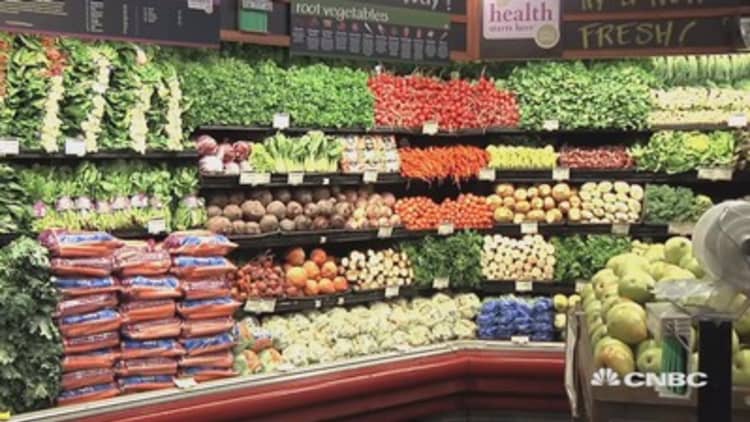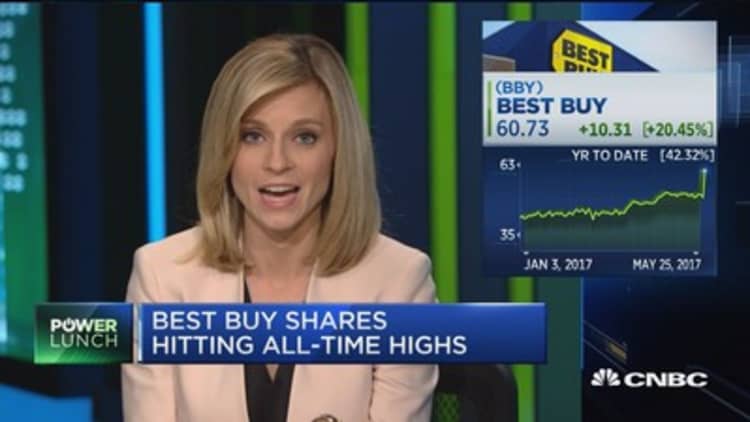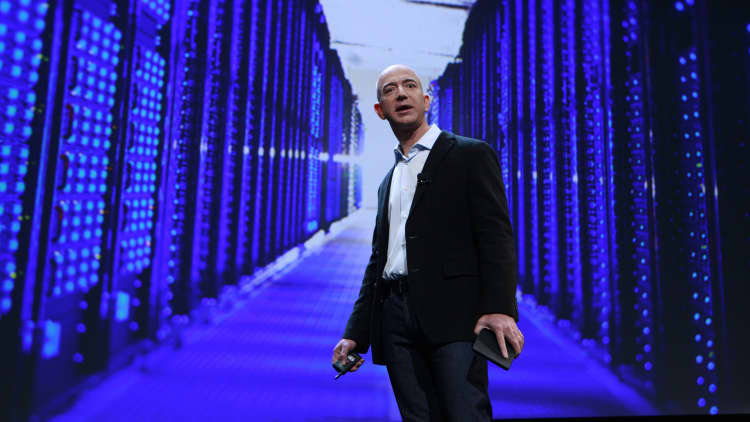
The announcement of Amazon's plans to buy grocery giant Whole Foods rocked the grocery industry Friday — and for good reason.
Jeff Bezos' Amazon has a history of disrupting markets, including the bookstore, electronics store and retail industries. The market response suggests investors fear the grocery industry could be next.
Bookstores
Amazon was an online bookstore before it was the sprawling e-commerce platform it is today. When Amazon opened in 1997, Barnes & Nobles and Borders dominated sales.
Amazon dipped into the two companies' book sales as customers warmed up to the idea of buying books from the comfort of their own homes. Then in 2007, Amazon released its first Kindle, a product that would allow users to buy and read books through one company.
The release nudged Amazon's stock up a tad, but it wasn't until 2009 when Kindle sales took off that the company's shares soared.
Borders could not keep up. In 2011, the company announced it was filing for Chapter 11 bankruptcy and shuttering its doors.
Barnes & Noble kept up with Amazon at first, but its sales started sagging in 2013, when revenue fell 4 percent, according to the company's annual report. Sales have continued to decrease, down 15 percent in 2015 from 2012, according to annual reports.
Meanwhile, Amazon continues gaining steam. The company opened its first bookstore in New York City last month in an attempt to bring its online shopping experience to the real world. Shoppers can opt to check out at a regular cashier station or use a camera to scan their books within the Amazon app and have them shipped.
Electronics stores
Amazon's expansion into the electronics market came at the expense of retailers such as longtime giants RadioShack and Circuit City. Each company fought to stay alive, with varying results.

RadioShack announced it would file for Chapter 11 bankruptcy in February 2015. The company kept its doors open, but just this month it announced it would close more than 1,000 stores, leaving only 72 company-owned stores open.
Circuit City Stores, once the No. 2 U.S. consumer electronics retailer, filed for Chapter 11 bankruptcy in November 2008. The brand was sold to another company, which tried to revive it online before closing in 2012. There was talk of a comeback, but those plans appear to have stalled.
Best Buy may be the only electronics store to have weathered the Amazon storm. The company's stock hit an all-time high in May as it focuses its energy on its online sales and providing a great in-store consumer experience.
Retail
More broadly, Amazon's popularity has shifted more retail sales online, battering the sector, with no end in sight.
The pain is most acute at the mall where foot traffic has slowed. Fewer shoppers mean softer sales, and this was very evident in the latest batch of department store earnings reports.
Sears has shuttered stores and cut jobs as Amazon has gained momentum. Just Tuesday, the company announced it would cut another 400 jobs, as it tries to reduce costs and fend off a potential bankruptcy filing.
Macy's, the biggest clothing store in the U.S., will close stores and lay off workers after a disappointing holiday shopping season when comparable sales were down 2.1 percent.
This week, Gymboree filed for Chapter 11 bankruptcy, and analysts expect more companies to face the same fate.
Meanwhile, Amazon does not appear to be slowing down anytime soon.
Watch: Beginning of the end of traditional retail



